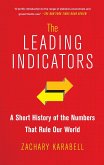"This is a unique text that not only discusses problems of recession, but also analyzes its impacts on industrial/organizational stability. It provides very useful answers on how to prevent recession from happening, and also on how to deal with it successfully if and whenever it occurs. Of particular importance is the role which communication -- verbal and nonverbal, interpersonal and mass media -- can (should) play to ensure intelligent and effective handling of recessions and their possible consequences". -- Andrew A. Moemeka, editor of Communicating for Development: A New Pan-Disciplinary Perspective This book explores the differential effects of recession on public and private sector organizations in America, Europe, and Asia. In America, the last recession led private sector firms to lower their break-even points and the government to seek new sources of tax revenue. In Europe, both the public and private sector organizations focused on the outflow of jobs and the rise in unemployment due to high labor costs, high public support program costs, and the failure of the European Community to become a Common Market. In Asia, Japan underwent a large emigration of production offshore due to the high yen to dollar ratio, a lengthy recession, and a massive government aid program which failed. In Australia and China, the economies recovered from recession and both public and private sector organizations have designed new strategies to keep the economy moving. In addition to the editors, contributors to this volume include Ron Cullen, Artur Czynczyk, Randall Harrison, Robyn Johnston. Andrzej K. Kozminski, S. Robert Leichter, Robert MacDougall, Ernest Martin Jr., Suzanne Morris, KrysztofObloj, Bill Quirke, Giuseppe Raimondi, and Ted J. Smith III.








